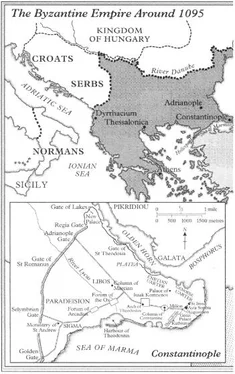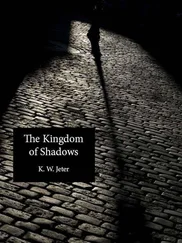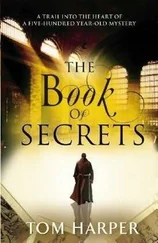Tom Harper - The mosaic of shadows
Здесь есть возможность читать онлайн «Tom Harper - The mosaic of shadows» весь текст электронной книги совершенно бесплатно (целиком полную версию без сокращений). В некоторых случаях можно слушать аудио, скачать через торрент в формате fb2 и присутствует краткое содержание. Жанр: Исторический детектив, на английском языке. Описание произведения, (предисловие) а так же отзывы посетителей доступны на портале библиотеки ЛибКат.
- Название:The mosaic of shadows
- Автор:
- Жанр:
- Год:неизвестен
- ISBN:нет данных
- Рейтинг книги:3 / 5. Голосов: 1
-
Избранное:Добавить в избранное
- Отзывы:
-
Ваша оценка:
- 60
- 1
- 2
- 3
- 4
- 5
The mosaic of shadows: краткое содержание, описание и аннотация
Предлагаем к чтению аннотацию, описание, краткое содержание или предисловие (зависит от того, что написал сам автор книги «The mosaic of shadows»). Если вы не нашли необходимую информацию о книге — напишите в комментариях, мы постараемся отыскать её.
The mosaic of shadows — читать онлайн бесплатно полную книгу (весь текст) целиком
Ниже представлен текст книги, разбитый по страницам. Система сохранения места последней прочитанной страницы, позволяет с удобством читать онлайн бесплатно книгу «The mosaic of shadows», без необходимости каждый раз заново искать на чём Вы остановились. Поставьте закладку, и сможете в любой момент перейти на страницу, на которой закончили чтение.
Интервал:
Закладка:
‘There go the Reds. Your Whites have gone too close to the spine. They’ll never take this turn cleanly.’
It seemed Sigurd was right, for the Whites had kept an impossibly straight line coming down the stretch towards us and would need to rein in the horses almost to a standstill if they were to make the turn without crashing. Seeing his chance, the Red driver was fading away to his right, intending to cut inside the White chariot and force him against the far wall so that his allies the Greens could go through.
‘Never mind that your horses can’t run. Now it seems you have a driver who can’t drive either.’ Sigurd did not disguise his glee.
But his crowing was too soon, for the Whites were not slowing their approach to the turn. If anything, they were accelerating. I saw the Red driver look over at his challenger in disbelief, then start frantically lashing his beasts in a belated effort at overhauling the Whites. He heaved on his reins, trying to edge across the Whites, but there was not enough space and his nerve failed him.
With immaculate timing, the White driver leaned back in his chariot and pulled in his team. They seemed to slow almost to a stop, inscribed a gentle arc around the post below us, and began to canter away down the far side while the Reds, held off from turning and forced almost against the wall, watched the Blues and the Greens gallop past them.
‘That won’t help the Greens,’ I shouted in Sigurd’s ear.
‘I thought the Whites were to knock out the Greens, not the Reds. Can’t they tell one team from another?’
The noise of the crowd was overpowering; all were on their feet now, willing their favourites to snatch the lead from the Whites, who were slowing quickly. By the next turning post, if not before, the teams behind would have caught them and their race would be effectively over. I had seen it happen too many times before. But, as Sigurd had said, they still had to trouble the Greens long enough for the Blues to edge in front. In a straight, wheel-to-wheel contest, not a man in that stadium would have gambled against the power of the Greens’ four horses.
The White driver now adopted a defensive strategy, standing almost side-on in the quadriga as he looked back to see his opponent. With every second that passed, he sacrificed speed veering across the track, trying to stop the Greens from passing while not impeding his Blue colleague. It was an awesome display of skill. But when your horses are tiring, and your opponents are nosing at your wheels, skill can be insufficient. They were about three quarters of the way down the eastern stretch, on the fifth circuit, when the Green driver turned his chariot slightly left. The White driver reacted immediately but was too quick: the Green had deceived him, and had just enough time to snake back across the track before throwing his horses into a skidding turn which must have come close to snapping his spokes. The White driver screamed at his horses to run faster, raining his lash down on their backs, and for a moment he and the Greens were galloping in tandem, as if all eight horses pulled a single, two-man chariot. The shouts from the crowd — from the factions, the gamblers, the fruit-sellers, even the morose man whom Sigurd had dislodged — rose in a cauldron of noise; Sigurd and I were bellowing out cheers and abuse like madmen. If the Whites could hold off the Greens until the next turn, I thought, they might have a slender hope of pushing them wide and upsetting their rhythm.
They could not. The Green driver, with almost indifferent ease, snapped his reins and watched the Whites drop ever further behind. By the time he reached the turn they were gone from his sight, and from there the distance only grew. The Blues tried to match his speed, but they had rested their hopes with the Whites and left their own charge too late. The noise subsided, and all around the hippodrome men began to reclaim their seats. Only the Green faction stayed standing: somehow they managed to sustain their cheering unbroken while their team galloped out the two remaining circuits.
‘Not a bad race,’ said Sigurd. ‘We could have done better. He waited too long to attack. But I never doubted he would do it.’
‘That,’ I told him, ‘is why I’ll never support the Greens.’
Some of the Green faction had vaulted over the wall and run onto the track to embrace their champion, to wrap him in the victor’s cloak and carry him on their shoulders in triumph. Down on my right, the palace guards had opened the gate to the Kathisma stairs, where the charioteer would soon ascend to receive the Emperor’s blessing. The Armenians beside me were cackling with glee and swapping piled coins among themselves, while other spectators argued over whether the Blues should find a better driver, or if they should send their horses to pasture and bring in a fresh team.
I was about to search out a fruit-seller when a movement down on the arena floor caught my eye. A spectator had crossed the barrier and was moving down the edge of the track; as I watched, he reached the foot of the stairs, darted past the hesitant guards and began running up towards the Kathisma. Straight towards the Emperor.
I leapt from my bench in a panic. What if this was the moment I had been commanded to prevent, an assassin who would murder the Emperor in full view of a hundred thousand Romans? Could it even be the monk? He was too far away to see, and obscured by the stair wall which also protected him. The lumbering guards were at last giving chase, but he was well ahead of them and climbing ever higher. If he pulled a bow from under his tunic now, I thought, he would have clear sight of the Emperor.
Not knowing what I could do, I ran. Not down, for that was too far and too crowded, but up, towards the long arcade which swept around the rim of the stadium. It was almost empty at this hour, save for a few children who had come to escape the noise and bustle, and I sprinted along it as if driven by Porphyrius himself, around the bend and down the straight to the place where steps fell away towards the Kathisma. So quickly did I take them that I almost tumbled headlong to my doom, but my desperately outflung arms managed to steady me on the shoulders of a passing wine-seller.
I reached a mezzanine, level with the second floor of the Kathisma, and paused. The interloper had stopped on the winner’s dais, an exposed platform before the Kathisma where the garlands were bestowed, and was on his knees. Patzinaks had sprung down from the imperial box to surround him, but they kept a wary distance as he finished his obeisance and rose to his feet.
‘Prince of Peace,’ he declaimed, ‘the least of your subjects begs an audience. Hear my petition, Lord, that you may know the mind of your people.’
He spoke loudly, in a voice well-drilled by some theatre or market. His words carried across the ranked benches, for all about him had fallen silent; further off, I could hear the murmurings as his oration was repeated around the hippodrome.
I could also see the Emperor from my vantage, ensconced on his throne like a statue of Solomon. He neither spoke nor moved, and his guards and courtiers followed his example.
I found the silence ominous, but the orator seemed to draw strength from it. ‘Why, Lord, are your lands ravaged by heretic barbarians, occupying our homes and eating our bread? Why do you tolerate their invasion, and feed their appetites for ransom and plunder? Every man in your realm would rather die defending his home from such carrion, than invite them in as wolves to the flock. Lead forth your armies, Lord, and drive them from our shore as once you routed the Normans and the Turks. Will we be snared by their wiles and slaved to their power? No.’
He was not alone in answering his own question — from all directions, voices began to echo his defiance.
Читать дальшеИнтервал:
Закладка:
Похожие книги на «The mosaic of shadows»
Представляем Вашему вниманию похожие книги на «The mosaic of shadows» списком для выбора. Мы отобрали схожую по названию и смыслу литературу в надежде предоставить читателям больше вариантов отыскать новые, интересные, ещё непрочитанные произведения.
Обсуждение, отзывы о книге «The mosaic of shadows» и просто собственные мнения читателей. Оставьте ваши комментарии, напишите, что Вы думаете о произведении, его смысле или главных героях. Укажите что конкретно понравилось, а что нет, и почему Вы так считаете.












